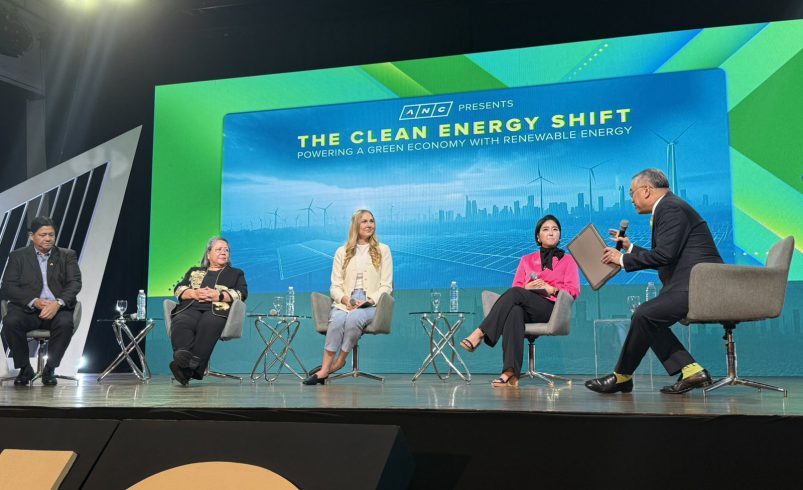CESF panel discussion: PH primed to lead Southeast Asia’s clean energy shift
- October 6, 2025
- 0

Energy leaders from both government and the private sector said the Philippines is on track to become one of Southeast Asia’s clean-energy frontrunners, with policy reforms, rising corporate demand, and renewable-energy investments accelerating across the country.
Speaking at the Clean Energy Shift Forum held on October 2 at the ABS-CBN Compound, Department of Energy (DOE) Undersecretary Rowena Cristina L. Guevara said the Philippines is now the second most attractive emerging market for renewable-energy investments worldwide. She credited the country’s Green Energy Auction Program (GEAP) for surpassing expectations, saying the DOE is confident the country will reach a 35% renewable-energy share by 2030.
“The Green Energy Auction bids have exceeded our targets,” Guevara said. “We are also developing policies for virtual PPAs, carbon transition credits, and retail aggregation so that renewable access can extend even to household consumers.”
Suji Kang, Program Director of the Asia Clean Energy Coalition (ACEC), said the Philippines already has the “key ingredients” to outpace its neighbors in decarbonization, citing its 122 gigawatts of solar potential, 178 GW of offshore-wind resources, and the world’s third-largest geothermal capacity.
“The Philippines is ahead of many ASEAN countries when it comes to mechanisms like power-purchase agreements and renewable-energy certificates,” Kang said. “What’s needed now is to streamline processes and expand grid capacity so corporate buyers can access more renewable power.”
Hannah Broman, Senior Policy Manager of RE100, noted that global corporations increasingly base investment decisions on clean-energy access. She said 95 percent of new RE100 corporate consumption now comes from Asia, adding that more companies are ready to relocate from fossil-heavy markets to cleaner ones.
“The Philippines’ 35% target by 2030 is very achievable,” Broman said. “Investors are looking at markets where renewable energy is both available and scalable.”
From the private-sector side, ACEN President and CEO Eric Francia said his company—already 100% renewable in its portfolio—plans to grow its local capacity by 40 to 50 percent in the next decade. Francia identified battery energy storage as “the most urgent need” to relieve grid congestion and enable round-the-clock renewable operations, particularly as data-center demand continues to rise.
“The data-center market alone is a multi-gigawatt opportunity,” Francia said. “Storage, distributed generation, and behind-the-meter solar can make renewable energy reliable 24/7.”
Undersecretary Guevara said the DOE is also addressing sustainability concerns tied to large-scale deployment, including solar-panel waste management and marine spatial planning for offshore wind. The department plans to fund a solar recycling research grant and promote agri-PV and aqua-PV systems to balance energy development with food security.
Throughout the discussion, panelists agreed that corporate engagement will be central to Asia’s decarbonization, as more multinational companies integrate renewable-energy sourcing into their operations and supply chains.
“The Philippines has both the policy foundation and private-sector appetite to lead this transition,” Kang said. “If reforms continue, the country can truly set the example for the region.”
Do you think the Philippines can maintain its momentum to become Southeast Asia’s leading clean-energy hub?
Follow Power Philippines on Facebook and LinkedIn or join our Viber community for more updates.